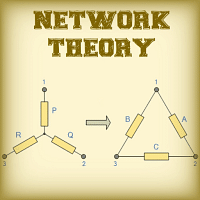Electrical Engineering (EE) Exam > Electrical Engineering (EE) Questions > Which of the following motors are used in tap...
Start Learning for Free
Which of the following motors are used in tape recorders
- a)Reluctance motor
- b)Universal motor
- c)Hysteresis motor
- d)None of these
Correct answer is option 'C'. Can you explain this answer?
| FREE This question is part of | Download PDF Attempt this Test |
Most Upvoted Answer
Which of the following motors are used in tape recordersa)Reluctance m...
Tape recorders, also known as magnetic tape recorders, are electronic devices used for recording and playing back audio signals. They use a magnetic tape to store the recorded information. When it comes to the type of motors used in tape recorders, the correct answer is option 'C' - Hysteresis motor.
Explanation:
- Hysteresis Motor:
A hysteresis motor is a synchronous motor that operates based on the hysteresis loss of the magnetic material. It is a type of single-phase motor that is used in applications where precise control of speed and position is required, such as in tape recorders.
- Working Principle of Hysteresis Motor:
The hysteresis motor consists of a rotor and a stator. The rotor is made of a magnetic material with high hysteresis loss, such as cobalt steel. The stator consists of a set of electromagnets.
- When an alternating current is supplied to the stator windings, a rotating magnetic field is produced. This rotating magnetic field induces eddy currents in the rotor. These eddy currents cause the rotor to rotate in the direction of the rotating magnetic field.
- Since the rotor material has high hysteresis loss, there is a time lag between the magnetic field and the rotor rotation. This time lag causes a torque to be developed, which drives the rotor in synchronization with the rotating magnetic field.
- Advantages of Hysteresis Motor:
1. Smooth and silent operation.
2. High torque at low speeds.
3. No brushes or commutators, resulting in low maintenance.
4. Accurate speed control.
5. Good speed regulation.
- Other Motor Types:
a) Reluctance Motor: Reluctance motors are not commonly used in tape recorders. They operate based on the principle of reluctance torque and are typically used in applications like fans, blowers, and pumps.
b) Universal Motor: Universal motors are not typically used in tape recorders. They are called "universal" because they can operate on both AC and DC power sources. They are commonly used in appliances like vacuum cleaners and power tools.
In conclusion, the correct motor type used in tape recorders is the hysteresis motor. It provides smooth and silent operation, good speed control, and accurate speed regulation, making it suitable for the precise requirements of recording and playing back audio signals.
Explanation:
- Hysteresis Motor:
A hysteresis motor is a synchronous motor that operates based on the hysteresis loss of the magnetic material. It is a type of single-phase motor that is used in applications where precise control of speed and position is required, such as in tape recorders.
- Working Principle of Hysteresis Motor:
The hysteresis motor consists of a rotor and a stator. The rotor is made of a magnetic material with high hysteresis loss, such as cobalt steel. The stator consists of a set of electromagnets.
- When an alternating current is supplied to the stator windings, a rotating magnetic field is produced. This rotating magnetic field induces eddy currents in the rotor. These eddy currents cause the rotor to rotate in the direction of the rotating magnetic field.
- Since the rotor material has high hysteresis loss, there is a time lag between the magnetic field and the rotor rotation. This time lag causes a torque to be developed, which drives the rotor in synchronization with the rotating magnetic field.
- Advantages of Hysteresis Motor:
1. Smooth and silent operation.
2. High torque at low speeds.
3. No brushes or commutators, resulting in low maintenance.
4. Accurate speed control.
5. Good speed regulation.
- Other Motor Types:
a) Reluctance Motor: Reluctance motors are not commonly used in tape recorders. They operate based on the principle of reluctance torque and are typically used in applications like fans, blowers, and pumps.
b) Universal Motor: Universal motors are not typically used in tape recorders. They are called "universal" because they can operate on both AC and DC power sources. They are commonly used in appliances like vacuum cleaners and power tools.
In conclusion, the correct motor type used in tape recorders is the hysteresis motor. It provides smooth and silent operation, good speed control, and accurate speed regulation, making it suitable for the precise requirements of recording and playing back audio signals.
Attention Electrical Engineering (EE) Students!
To make sure you are not studying endlessly, EduRev has designed Electrical Engineering (EE) study material, with Structured Courses, Videos, & Test Series. Plus get personalized analysis, doubt solving and improvement plans to achieve a great score in Electrical Engineering (EE).

|
Explore Courses for Electrical Engineering (EE) exam
|

|
Which of the following motors are used in tape recordersa)Reluctance motorb)Universal motorc)Hysteresis motord)None of theseCorrect answer is option 'C'. Can you explain this answer?
Question Description
Which of the following motors are used in tape recordersa)Reluctance motorb)Universal motorc)Hysteresis motord)None of theseCorrect answer is option 'C'. Can you explain this answer? for Electrical Engineering (EE) 2024 is part of Electrical Engineering (EE) preparation. The Question and answers have been prepared according to the Electrical Engineering (EE) exam syllabus. Information about Which of the following motors are used in tape recordersa)Reluctance motorb)Universal motorc)Hysteresis motord)None of theseCorrect answer is option 'C'. Can you explain this answer? covers all topics & solutions for Electrical Engineering (EE) 2024 Exam. Find important definitions, questions, meanings, examples, exercises and tests below for Which of the following motors are used in tape recordersa)Reluctance motorb)Universal motorc)Hysteresis motord)None of theseCorrect answer is option 'C'. Can you explain this answer?.
Which of the following motors are used in tape recordersa)Reluctance motorb)Universal motorc)Hysteresis motord)None of theseCorrect answer is option 'C'. Can you explain this answer? for Electrical Engineering (EE) 2024 is part of Electrical Engineering (EE) preparation. The Question and answers have been prepared according to the Electrical Engineering (EE) exam syllabus. Information about Which of the following motors are used in tape recordersa)Reluctance motorb)Universal motorc)Hysteresis motord)None of theseCorrect answer is option 'C'. Can you explain this answer? covers all topics & solutions for Electrical Engineering (EE) 2024 Exam. Find important definitions, questions, meanings, examples, exercises and tests below for Which of the following motors are used in tape recordersa)Reluctance motorb)Universal motorc)Hysteresis motord)None of theseCorrect answer is option 'C'. Can you explain this answer?.
Solutions for Which of the following motors are used in tape recordersa)Reluctance motorb)Universal motorc)Hysteresis motord)None of theseCorrect answer is option 'C'. Can you explain this answer? in English & in Hindi are available as part of our courses for Electrical Engineering (EE).
Download more important topics, notes, lectures and mock test series for Electrical Engineering (EE) Exam by signing up for free.
Here you can find the meaning of Which of the following motors are used in tape recordersa)Reluctance motorb)Universal motorc)Hysteresis motord)None of theseCorrect answer is option 'C'. Can you explain this answer? defined & explained in the simplest way possible. Besides giving the explanation of
Which of the following motors are used in tape recordersa)Reluctance motorb)Universal motorc)Hysteresis motord)None of theseCorrect answer is option 'C'. Can you explain this answer?, a detailed solution for Which of the following motors are used in tape recordersa)Reluctance motorb)Universal motorc)Hysteresis motord)None of theseCorrect answer is option 'C'. Can you explain this answer? has been provided alongside types of Which of the following motors are used in tape recordersa)Reluctance motorb)Universal motorc)Hysteresis motord)None of theseCorrect answer is option 'C'. Can you explain this answer? theory, EduRev gives you an
ample number of questions to practice Which of the following motors are used in tape recordersa)Reluctance motorb)Universal motorc)Hysteresis motord)None of theseCorrect answer is option 'C'. Can you explain this answer? tests, examples and also practice Electrical Engineering (EE) tests.

|
Explore Courses for Electrical Engineering (EE) exam
|

|
Suggested Free Tests
Signup for Free!
Signup to see your scores go up within 7 days! Learn & Practice with 1000+ FREE Notes, Videos & Tests.






















